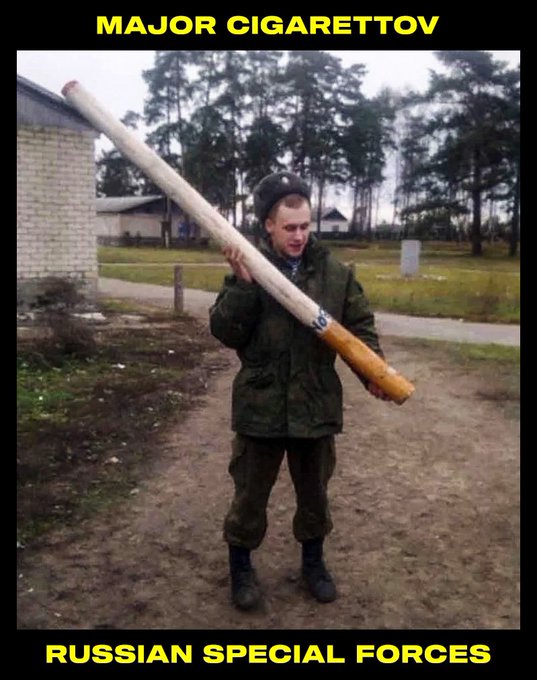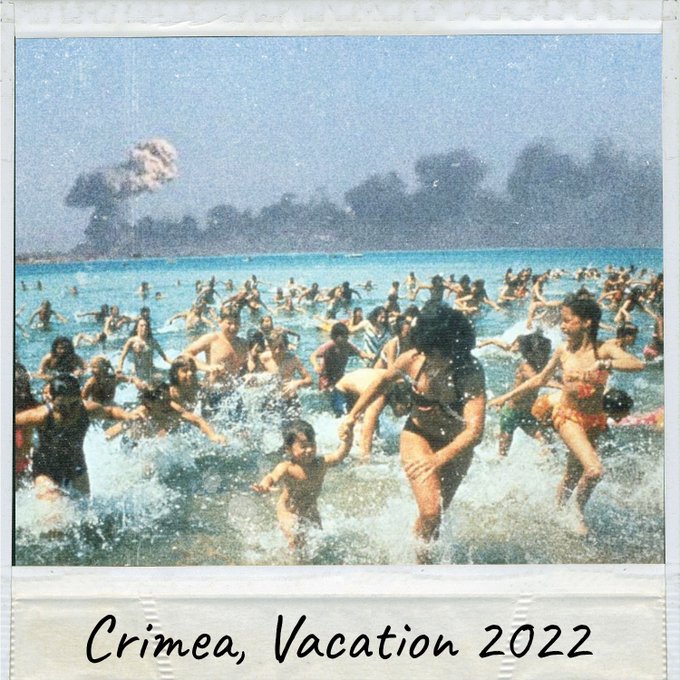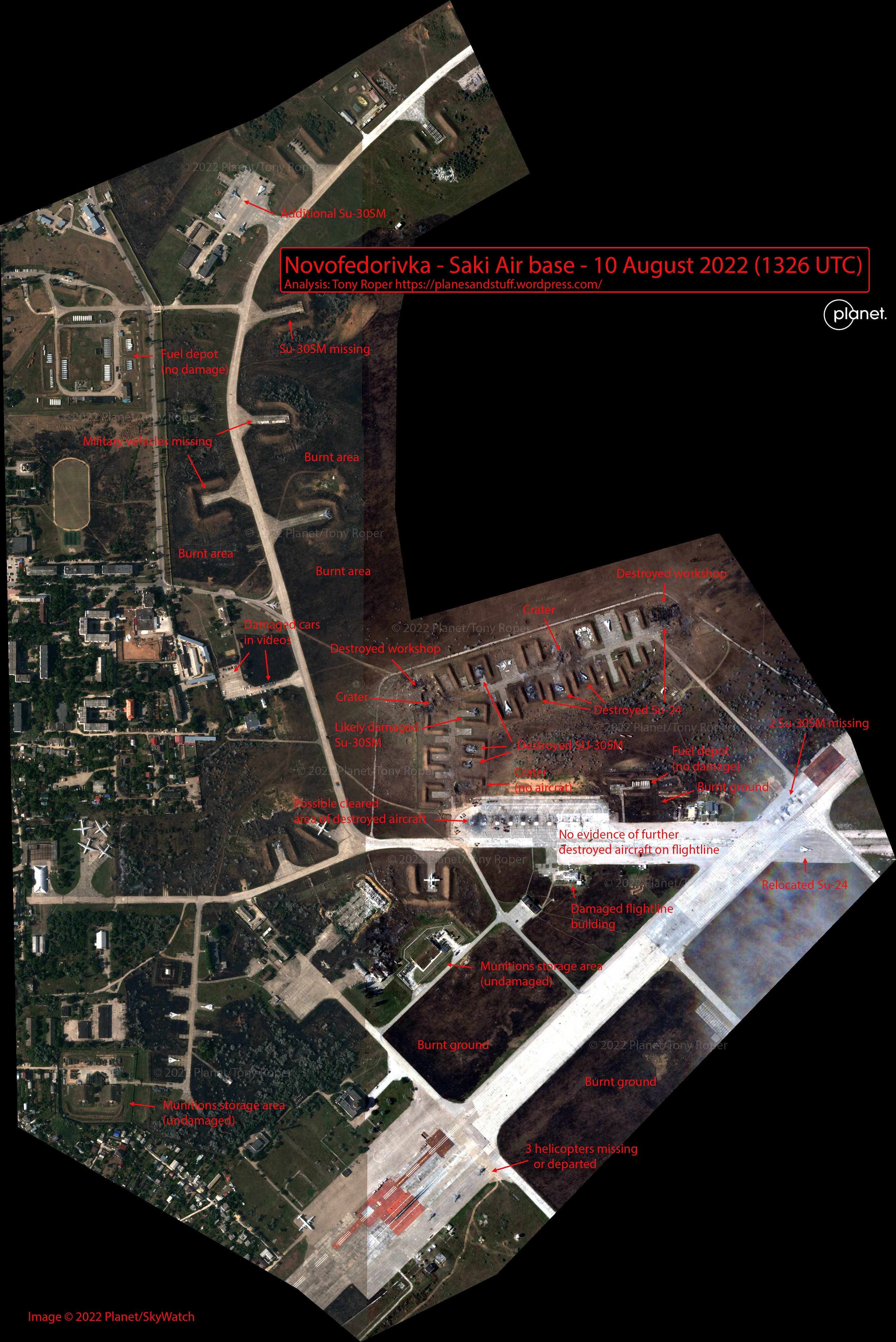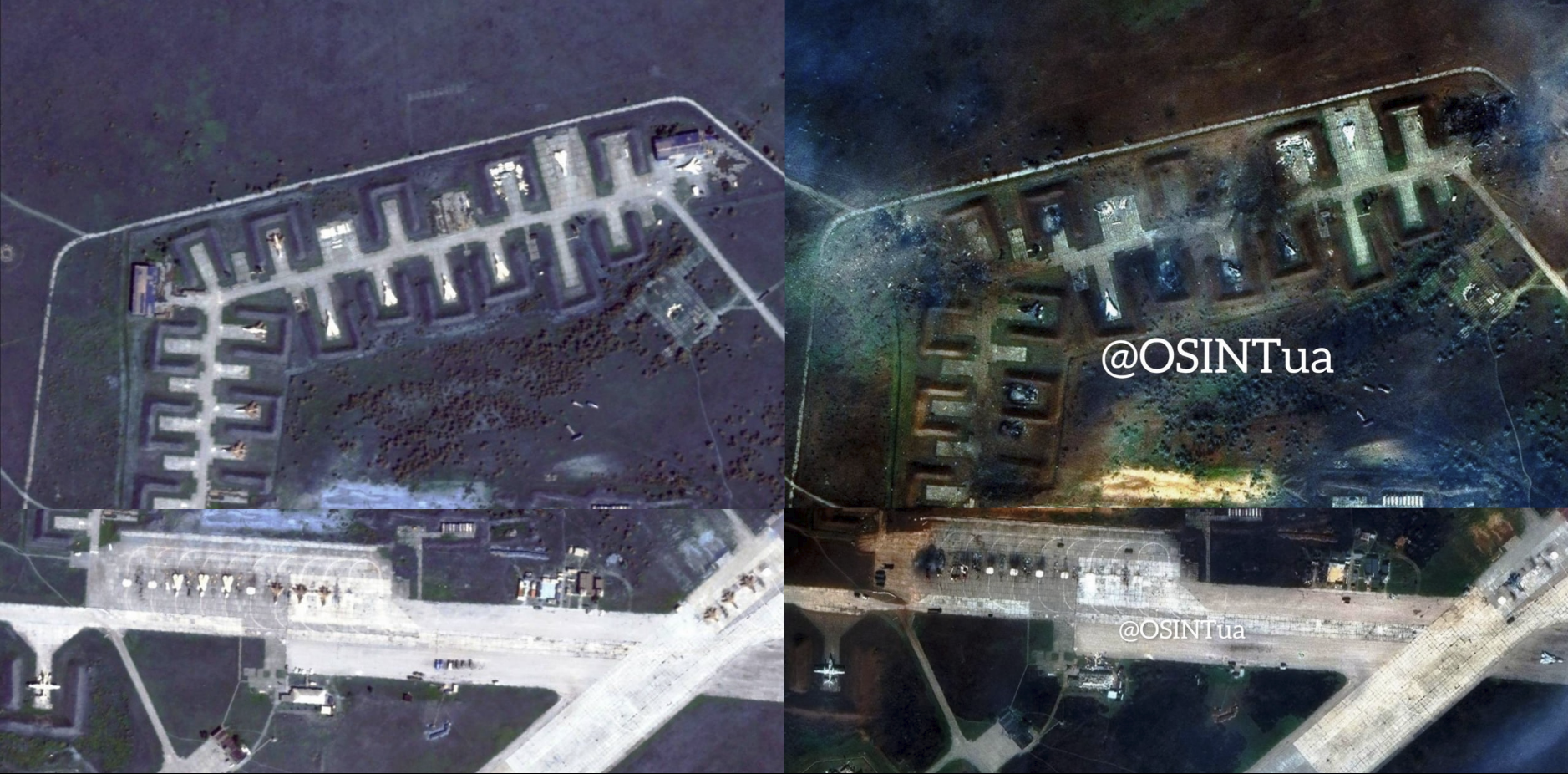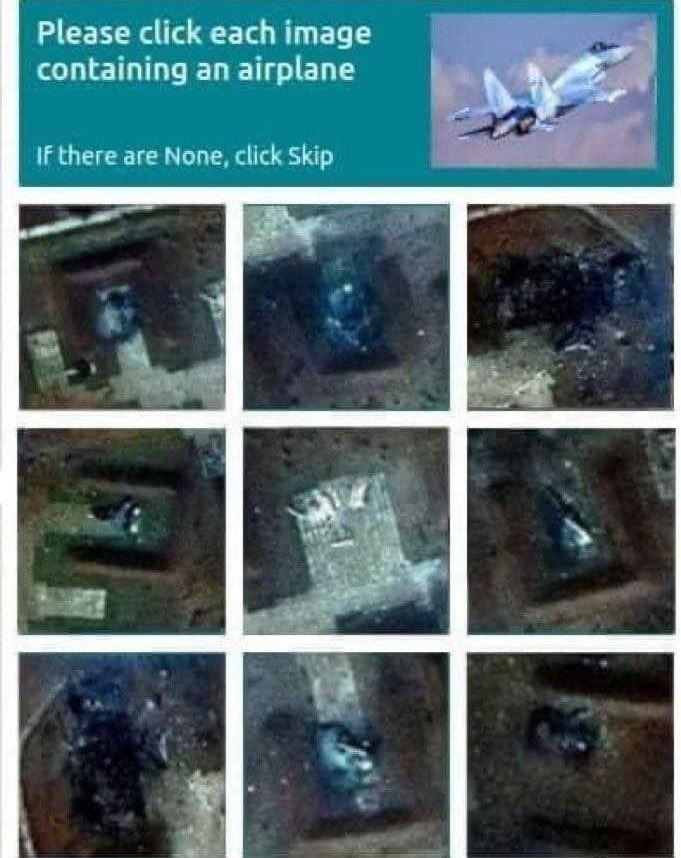Colleges
- American Athletic
- Atlantic Coast
- Big 12
- Big East
- Big Ten
- Colonial
- Conference USA
- Independents (FBS)
- Junior College
- Mountain West
- Northeast
- Pac-12
- Patriot League
- Pioneer League
- Southeastern
- Sun Belt
- Army
- Charlotte
- East Carolina
- Florida Atlantic
- Memphis
- Navy
- North Texas
- Rice
- South Florida
- Temple
- Tulane
- Tulsa
- UAB
- UTSA
- Boston College
- California
- Clemson
- Duke
- Florida State
- Georgia Tech
- Louisville
- Miami (FL)
- North Carolina
- North Carolina State
- Pittsburgh
- Southern Methodist
- Stanford
- Syracuse
- Virginia
- Virginia Tech
- Wake Forest
- Arizona
- Arizona State
- Baylor
- Brigham Young
- Cincinnati
- Colorado
- Houston
- Iowa State
- Kansas
- Kansas State
- Oklahoma State
- TCU
- Texas Tech
- UCF
- Utah
- West Virginia
- Illinois
- Indiana
- Iowa
- Maryland
- Michigan
- Michigan State
- Minnesota
- Nebraska
- Northwestern
- Ohio State
- Oregon
- Penn State
- Purdue
- Rutgers
- UCLA
- USC
- Washington
- Wisconsin
High Schools
- Illinois HS Sports
- Indiana HS Sports
- Iowa HS Sports
- Kansas HS Sports
- Michigan HS Sports
- Minnesota HS Sports
- Missouri HS Sports
- Nebraska HS Sports
- Oklahoma HS Sports
- Texas HS Hoops
- Texas HS Sports
- Wisconsin HS Sports
- Cincinnati HS Sports
- Delaware
- Maryland HS Sports
- New Jersey HS Hoops
- New Jersey HS Sports
- NYC HS Hoops
- Ohio HS Sports
- Pennsylvania HS Sports
- Virginia HS Sports
- West Virginia HS Sports
ADVERTISEMENT
This might be a little tougher than Putin thought...
- Thread starter Nole Lou
- Start date
If Poland invades Belarus that doesn’t put NATO members on the Article 5 hook, it takes them off.If Belarus goes in, then they need to launch quite a few Himars at them and then also see if Poland can get involved directly. Maybe Poland doesn't go into Ukraine, but instead invades Belarus directly. Although that's just the kind of action that does lead to world war... Although you have to wonder just how much of the world is willing to get involved on Russia's behalf. I mean I don't really worry about Iran, North Korea, and Belarus becoming a major faction of danger.
But I think if Poland invades Belarus the Russians see it as WW3 and if it looks like they could lose (and who imagines it could go any other way in a conventional war?) cities start getting vaporized.
Russia has lost an estimated 30,000-40,000 soldiers since February 24th. (166 days). That comes to an average of 181 to 244 Russian soldiers killed per day since the start of the war. But the people of Russia don’t seem to give a sh*t….Unbelievable!!
All republicans support Trump, all democrats support socialism, and all Russians support this war,... Really?,.. Don't believe the narrative.
Actually, no Republicans support Trump.All republicans support Trump, all democrats support socialism, and all Russians support this war,... Really?,.. Don't believe the narrative.
The ones that do aren't really Republicans, nor conservatives (anymore).
"The nation of Belarus does not support the Russian armed aggression and a full-scale invasion of Ukraine," he said, noting that openly voicing opposition to the war in which Belarusian President Aleksandr Lukashenko has supported could lead to hefty jail times.
"Russia currently suffers colossal losses of personnel, weapons, and equipment," Kyt said. "Belarusian troops observing the situation through the internet are totally mentally unprepared."
- Sep 13, 2002
- 100,655
- 213,553
- 113
Not buying any of this Belarussian bullshit anyway. If they were going to get into the fray, they would have done it early. No way they are going to enter in late, on the losing side.
Actually, no Republicans support Trump.
The ones that do aren't really Republicans, nor conservatives (anymore).
This thread is about the war in Ukraine,.. try to offer comments with some connection to the story at hand.
I would agree. Sometimes it creeps in but we can all agree Russia sucks and their invading forces should be blown up. It has been a nice thread having cats and dogs coexisting so well and it would be nice for it to remain so.This thread is about the war in Ukraine,.. try to offer comments with some connection to the story at hand.
Equipment the Russians couldn't fit inside the plant I imagine.
This says differently.
This says differently.
A little longer video.
Moscow seems very flammable.This appears to be another angle of the conscripts barracks burning.
"Near Moscow, the military unit of the air defense of the Russian capital is burning."
Russians are making a case form themselves to be exterminated by NATO if they are found within shelling range of the reactor. They could be screwing up parts of Ukraine and other areas forever.Equipment the Russians couldn't fit inside the plant I imagine.
This says differently.
Some Ukrainian kids are gonna end up with the Best Bouncy House EVER!!!
- Sep 13, 2002
- 100,655
- 213,553
- 113
Very powerful and inspiring story about Ukrainian civilian "soft resistance" in The Atlantic this week. It's long, so might take a couple posts to fit it in:
By Anne Applebaum
AUGUST 10, 2022, 6:45 AM ET
History has turning points, moments when events shift and the future seems suddenly clear. But history also has in-between points, days and weeks when everything seems impermanent and nobody knows what will happen next. Odesa in the summer of 2022 is like that—a city suspended between great events. The panic that swept the city in February, when it seemed the Russian invaders might win quickly, already feels like a long time ago. Now the city is hot, half empty, and bracing itself for what comes next.
Some are preparing for the worst. Odesa endured a 10-week German and Romanian siege during the Second World War, then a three-year occupation; the current mayor, Gennadiy Trukhanov, told me that the city is now filling warehouses with food and medicine, in case history repeats itself. On July 11, Ukrainian security services caught a Russian spy scouting potential targets in the city. On July 23, Russian bombs hit the Odesa docks, despite an agreement reached just the previous day to restart grain exports. The beautiful waterfront, where the Potemkin Stairs lead down to the Black Sea, remains blocked by a maze of concrete barriers and barbed wire. Russian-occupied Kherson, where you can be interrogated just for speaking Ukrainian, is just a few hours’ drive away.
In the meantime, pedestrians stroll past the Italian facades in Odesa’s historic center and drink coffee beneath umbrellas. The Ukrainian novelist Andrey Kurkov recently wrote that “I used to pay a lot of attention to time, using it as effectively as possible.” Now, instead, “I pay attention to the war.” In Odesa, people also pay attention to the war, obsessive attention; some of those I met have installed apps on their phones that echo the air-raid sirens. But then they switch off the sound when their phones start to howl. Fear becomes normalized, until eventually it becomes another part of the background noise. My hotel had an air-raid shelter, a windowless room, but no one went there during air raids. “You’ll be lucky or unlucky,” the porter told me. No point in trying to escape fate.
Those who can’t endure life in suspended animation are abroad, wondering if they should come back; some who remain wonder if they should leave. Companies have shut down—I was told about one that closed in the first week of the invasion; the owners fired everyone and moved to Spain—and investments are on hold. None of this is accidental. The Russian strategy toward Ukraine is designed to demoralize and demotivate.
It works. Except when it doesn’t.
For the languor of Odesa is the backdrop, not the story: Not everyone there is afflicted with apathy, anxiety, or the fear of losing. On the contrary, even in this strange moment, when time doesn’t seem worth measuring, some people are intensely busy. Across the city, students, accountants, hairdressers, and every other conceivable profession have joined what can only be described as an unprecedented social movement. They call themselves volonteri, and their organizations, their crowdfunding campaigns, and their activism help explain why the Ukrainian army has fought so hard and so well, why a decade-long Russian attempt to co-opt the Ukrainian state mostly failed, even (or maybe especially) in Russian-speaking Odesa.
In a paralyzed landscape, in a stalled economy, in a city where no one can plan anything, the volonteri are creating the future. They aren’t afraid of loss, siege, or occupation, because they think they are going to win.
Out of almost nothing—out of a beat-up apartment building at the back of an empty courtyard—Anna Bondarenko has already created a community, a refuge from the war. The offices of her Ukrainian Volunteer Service (UVS) are in old rooms with high ceilings; the largest, lined with desks, has the words a good deed has great power painted on one of the walls. Other rooms contain a kitchen—often, the team eats meals together—and some bunk beds for those who need them. Bondarenko told me that at age 15, she spent a year as an exchange student at an American high school, where she found herself for the first time having to explain where Ukraine is, and what it is, and, though she came from a Russian-speaking family, she discovered that she liked the idea of being Ukrainian. She also encountered the concept of community service. She volunteered at her host family’s local church, at a national park, at an animal shelter. She remembers entering a contest, trying to accumulate 150 hours of community service in order to get a certificate signed by Barack Obama. (Hers, alas, was signed by someone else.)
She came home wanting to continue volunteering and signed up to work on a couple of festivals, including one marking Ukraine’s independence day. But in between festivals, she and her friends couldn’t find organizations that inspired them. Eventually, she set up the UVS, an organization designed to solve that problem, matching people who want to volunteer with other people who need help.The team created a clever website, made contact with a few like-minded people around the country, and organized training weekends for people who wanted to be volunteers or promote volunteering. They raised a little bit of money (including a small grant from the National Endowment for Democracy, whose board I serve on).
Then the war started. Demand exploded.
No one on Bondarenko’s UVS team is over the age of 30, and some are under 20. Bondarenko, at 26, is one of the oldest people in the room. Nevertheless, since the early hours of the morning of February 24, UVS has fielded thousands of requests, creating a set of websites, chat sites, and chatbots that eventually matched more than 100,000 people—accountants, drivers, medics—with more than 900 organizations across the country. Ukrainians find UVS via Instagram, Facebook, Telegram, TikTok; when you type I want to volunteer into a Ukrainian Google search, UVS is the first organization to come up. Bondarenko’s team has sent volunteers to help distribute food packages to people who lost their homes, clean up rubble after bombing raids, and, for those willing to take real risks, to drive cars or buses into war zones and pull people out. People wrote to them for advice: How should we make Molotov cocktails? How should we evacuate? And the volunteers tried to find experts who could give them answers.
THE OTHER UKRAINIAN ARMY
Imperiled by Russian invaders, private citizens are stepping forward to do what Ukraine’s government cannot.By Anne Applebaum
AUGUST 10, 2022, 6:45 AM ET
History has turning points, moments when events shift and the future seems suddenly clear. But history also has in-between points, days and weeks when everything seems impermanent and nobody knows what will happen next. Odesa in the summer of 2022 is like that—a city suspended between great events. The panic that swept the city in February, when it seemed the Russian invaders might win quickly, already feels like a long time ago. Now the city is hot, half empty, and bracing itself for what comes next.
Some are preparing for the worst. Odesa endured a 10-week German and Romanian siege during the Second World War, then a three-year occupation; the current mayor, Gennadiy Trukhanov, told me that the city is now filling warehouses with food and medicine, in case history repeats itself. On July 11, Ukrainian security services caught a Russian spy scouting potential targets in the city. On July 23, Russian bombs hit the Odesa docks, despite an agreement reached just the previous day to restart grain exports. The beautiful waterfront, where the Potemkin Stairs lead down to the Black Sea, remains blocked by a maze of concrete barriers and barbed wire. Russian-occupied Kherson, where you can be interrogated just for speaking Ukrainian, is just a few hours’ drive away.
In the meantime, pedestrians stroll past the Italian facades in Odesa’s historic center and drink coffee beneath umbrellas. The Ukrainian novelist Andrey Kurkov recently wrote that “I used to pay a lot of attention to time, using it as effectively as possible.” Now, instead, “I pay attention to the war.” In Odesa, people also pay attention to the war, obsessive attention; some of those I met have installed apps on their phones that echo the air-raid sirens. But then they switch off the sound when their phones start to howl. Fear becomes normalized, until eventually it becomes another part of the background noise. My hotel had an air-raid shelter, a windowless room, but no one went there during air raids. “You’ll be lucky or unlucky,” the porter told me. No point in trying to escape fate.
Those who can’t endure life in suspended animation are abroad, wondering if they should come back; some who remain wonder if they should leave. Companies have shut down—I was told about one that closed in the first week of the invasion; the owners fired everyone and moved to Spain—and investments are on hold. None of this is accidental. The Russian strategy toward Ukraine is designed to demoralize and demotivate.
It works. Except when it doesn’t.
For the languor of Odesa is the backdrop, not the story: Not everyone there is afflicted with apathy, anxiety, or the fear of losing. On the contrary, even in this strange moment, when time doesn’t seem worth measuring, some people are intensely busy. Across the city, students, accountants, hairdressers, and every other conceivable profession have joined what can only be described as an unprecedented social movement. They call themselves volonteri, and their organizations, their crowdfunding campaigns, and their activism help explain why the Ukrainian army has fought so hard and so well, why a decade-long Russian attempt to co-opt the Ukrainian state mostly failed, even (or maybe especially) in Russian-speaking Odesa.
In a paralyzed landscape, in a stalled economy, in a city where no one can plan anything, the volonteri are creating the future. They aren’t afraid of loss, siege, or occupation, because they think they are going to win.
Out of almost nothing—out of a beat-up apartment building at the back of an empty courtyard—Anna Bondarenko has already created a community, a refuge from the war. The offices of her Ukrainian Volunteer Service (UVS) are in old rooms with high ceilings; the largest, lined with desks, has the words a good deed has great power painted on one of the walls. Other rooms contain a kitchen—often, the team eats meals together—and some bunk beds for those who need them. Bondarenko told me that at age 15, she spent a year as an exchange student at an American high school, where she found herself for the first time having to explain where Ukraine is, and what it is, and, though she came from a Russian-speaking family, she discovered that she liked the idea of being Ukrainian. She also encountered the concept of community service. She volunteered at her host family’s local church, at a national park, at an animal shelter. She remembers entering a contest, trying to accumulate 150 hours of community service in order to get a certificate signed by Barack Obama. (Hers, alas, was signed by someone else.)
She came home wanting to continue volunteering and signed up to work on a couple of festivals, including one marking Ukraine’s independence day. But in between festivals, she and her friends couldn’t find organizations that inspired them. Eventually, she set up the UVS, an organization designed to solve that problem, matching people who want to volunteer with other people who need help.The team created a clever website, made contact with a few like-minded people around the country, and organized training weekends for people who wanted to be volunteers or promote volunteering. They raised a little bit of money (including a small grant from the National Endowment for Democracy, whose board I serve on).
Then the war started. Demand exploded.
No one on Bondarenko’s UVS team is over the age of 30, and some are under 20. Bondarenko, at 26, is one of the oldest people in the room. Nevertheless, since the early hours of the morning of February 24, UVS has fielded thousands of requests, creating a set of websites, chat sites, and chatbots that eventually matched more than 100,000 people—accountants, drivers, medics—with more than 900 organizations across the country. Ukrainians find UVS via Instagram, Facebook, Telegram, TikTok; when you type I want to volunteer into a Ukrainian Google search, UVS is the first organization to come up. Bondarenko’s team has sent volunteers to help distribute food packages to people who lost their homes, clean up rubble after bombing raids, and, for those willing to take real risks, to drive cars or buses into war zones and pull people out. People wrote to them for advice: How should we make Molotov cocktails? How should we evacuate? And the volunteers tried to find experts who could give them answers.
- Sep 13, 2002
- 100,655
- 213,553
- 113
Sometimes they rescue their own colleagues. Lisa is a UVS team member from Melitopol, a Ukrainian city occupied during the first part of the war. I am withholding Lisa’s surname because her parents remain in a Russian-controlled village in southern Ukraine, but I can tell you that Lisa has long reddish hair, white fingernail polish, and a sheaf of wheat, a Ukrainian patriotic symbol, tattooed on her forearm. When she was still in occupied Melitopol, Russian patrols would stop her and ask her, as they ask everyone, to show them her tattoos. She kept the wheat sheaf hidden beneath long-sleeved shirts, but every time this happened, she was terrified. Still, she was responsible for distributing food in a part of the city cut off from the center, and so she stayed until someone from a partner organization called Bondarenko to warn her that Lisa was on a list to be arrested or kidnapped. UVS helped Lisa leave within hours.
Lisa now coordinates volunteers in the occupied territories using encrypted-messaging apps and Telegram channels. So does Stefan Vorontsov, a UVS coordinator from Nova Kakhovka, another town behind Russian lines. He, like Lisa, remained for more than a month after the invasion, trying to be useful. He and his colleagues scraped together some funds, bought food and medicine, and distributed it to people who had lost houses and jobs. The volunteers in the town tried to protect themselves by wearing red crosses on their arms, but doing so had the opposite effect: The symbols attracted the attention of Russian soldiers, who stopped anyone wearing them for questioning and sometimes arrest. By the time Vorontsov escaped Nova Kakhovka, volunteers had learned to wipe their phones clean every day before leaving the house and to have carefully prepared answers for the Russian soldiers who stopped them constantly. I spoke with Vorontsov by video link; he is now living in Georgia. “People are leaving all the time,” he told me. “Pretty soon there will be no one left to help.”
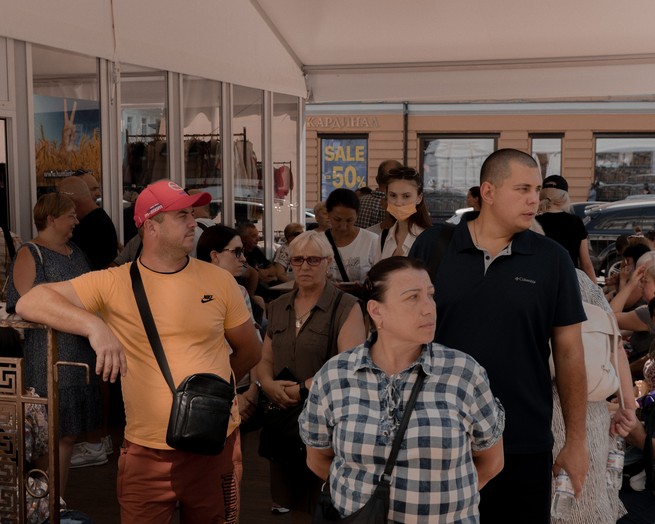
In one sense, the Russian suspicion of people like Vorontsov and Lisa is well founded. Although most of the volunteers on the ground are engaged in purely humanitarian work, there really is a link between participation in public life—any kind of participation in public life—and Ukrainian patriotism. This link is not new. Whatever it was that motivated people to contribute their time to their communities before the war, whether in the name of music, art, or animal shelters, the same impulse pushes them toward an idea, perhaps an ideal, of democratic Ukraine, and makes them want to help the war effort now. Serhiy Lukachko, who also works out of the UVS office, runs a website called My City, which was once dedicated to supporting cultural events and other projects in Odesa. Now he and a colleague have put their fundraising talents to the aid of a Ukrainian army brigade. Through crowdfunding, they purchase body armor, extra uniforms, and the four-wheel-drive SUVs that are in such high demand at the front. “We talk once a week,” Lukachko told me. “They give me a checklist.”
It could be a gloomy place, this building full of very young people, some of whom are still going through the trauma of displacement and all of whom have friends or relatives in grave danger. Lisa has an arranged time to speak for a few seconds with her parents every day, just to make sure they are okay. Bondarenko has a boyfriend in the army. Later, over dinner at a Crimean Tartar restaurant, Bondarenko told me that she has already lost friends to the war. The first time she learned of such a death, she spent the evening weeping. The second time it happened, she resolved to mourn everybody at the end, when the war is over, “after we have won.”
Right now, she is busy. So is everyone else in her immediate vicinity, and that energy creates its own momentum, becomes its own inspiration. Nobody in the world of Odesa community organizations is competing for funding anymore. Nobody is jockeying for position or worrying about prestige. “Everybody just kind of tries to help each other,” Bondarenko said, “and it feels really different.” And that is what she wants Odesa, and Ukraine, to be like in the future.
Lisa now coordinates volunteers in the occupied territories using encrypted-messaging apps and Telegram channels. So does Stefan Vorontsov, a UVS coordinator from Nova Kakhovka, another town behind Russian lines. He, like Lisa, remained for more than a month after the invasion, trying to be useful. He and his colleagues scraped together some funds, bought food and medicine, and distributed it to people who had lost houses and jobs. The volunteers in the town tried to protect themselves by wearing red crosses on their arms, but doing so had the opposite effect: The symbols attracted the attention of Russian soldiers, who stopped anyone wearing them for questioning and sometimes arrest. By the time Vorontsov escaped Nova Kakhovka, volunteers had learned to wipe their phones clean every day before leaving the house and to have carefully prepared answers for the Russian soldiers who stopped them constantly. I spoke with Vorontsov by video link; he is now living in Georgia. “People are leaving all the time,” he told me. “Pretty soon there will be no one left to help.”

In one sense, the Russian suspicion of people like Vorontsov and Lisa is well founded. Although most of the volunteers on the ground are engaged in purely humanitarian work, there really is a link between participation in public life—any kind of participation in public life—and Ukrainian patriotism. This link is not new. Whatever it was that motivated people to contribute their time to their communities before the war, whether in the name of music, art, or animal shelters, the same impulse pushes them toward an idea, perhaps an ideal, of democratic Ukraine, and makes them want to help the war effort now. Serhiy Lukachko, who also works out of the UVS office, runs a website called My City, which was once dedicated to supporting cultural events and other projects in Odesa. Now he and a colleague have put their fundraising talents to the aid of a Ukrainian army brigade. Through crowdfunding, they purchase body armor, extra uniforms, and the four-wheel-drive SUVs that are in such high demand at the front. “We talk once a week,” Lukachko told me. “They give me a checklist.”
It could be a gloomy place, this building full of very young people, some of whom are still going through the trauma of displacement and all of whom have friends or relatives in grave danger. Lisa has an arranged time to speak for a few seconds with her parents every day, just to make sure they are okay. Bondarenko has a boyfriend in the army. Later, over dinner at a Crimean Tartar restaurant, Bondarenko told me that she has already lost friends to the war. The first time she learned of such a death, she spent the evening weeping. The second time it happened, she resolved to mourn everybody at the end, when the war is over, “after we have won.”
Right now, she is busy. So is everyone else in her immediate vicinity, and that energy creates its own momentum, becomes its own inspiration. Nobody in the world of Odesa community organizations is competing for funding anymore. Nobody is jockeying for position or worrying about prestige. “Everybody just kind of tries to help each other,” Bondarenko said, “and it feels really different.” And that is what she wants Odesa, and Ukraine, to be like in the future.
- Sep 13, 2002
- 100,655
- 213,553
- 113
Bondarenko and her team were inspired by American practices of community service—well-designed websites, clever social-media posts—but other cultural influences are at work in Odesa too. One of them is toloka, an old word used in Ukrainian, Russian, and certain Baltic languages to describe spontaneous community projects. When someone’s house burns down, the village gets together to rebuild it. That’s toloka. When a man dies, the village helps the widow harvest her crops. That’s toloka too. Kurkov, the Ukrainian novelist, has defined toloka as “community work for the common good,” and it helps explain why so many people have given up so much to pitch in.
Dmytro Milyutin, for example, lives in a world that bears no resemblance to an old-fashioned Ukrainian village. He runs a parfumerie, a shop in central Odesa where he sells famous perfumes as well as oddities, bottles containing the scent of smoke or of apple pie. He designs fragrances for individuals and says he considers himself a connoisseur “not just of scents but of emotions.” But since the war began, he has sold a fifth of his perfume collection and taken out a loan to provide sophisticated military clothing to Ukrainian soldiers fighting near Odesa. The Ukrainian army distributes basic uniforms, but not the pocketed vests specially designed to carry guns and first-aid kits, or the light backpacks that American soldiers take for granted. Milyutin got a local fashion designer to put aside his dressmaking business and start sewing together canvas and velcro strips to make things easier for soldiers on the move. He, too, keeps in touch directly with commanders.
While Milyutin and I speak, two women in heels and full makeup come in to buy perfume. They spray different scents onto little sticks and wave them in front of their nose as Milyutin keeps talking about the design of the backpacks that are gathered on the floor beneath the bottles. The ladies don’t mind the backpacks, because that kind of thing, like the air-raid sirens, is normal now too.
Around the corner from Milyutin’s shop, Olexander Babich’s office also now contains piles of sleeping bags, ground mats, binoculars, and night-vision goggles, bought using donations, now being sorted for distribution. Babich is a well-known historian and the author of Odessa 1941–1944, a book about daily life under the fascist occupation, about how people survived, and, he writes, about “how people befriended the enemy, or opposed them.” When the war began, he drove his family across the border, came home, and began to prepare to oppose the new enemy. He and some historians from Kherson, now living in his apartment, track down, import, and distribute the equipment that is now stacked up against the bookshelves. They go to shooting ranges themselves, too, just to keep in practice. In a very real sense, they are already supporting Ukrainian soldiers the way an old-fashioned resistance movement would, except that they use the internet to raise money and purchase equipment.
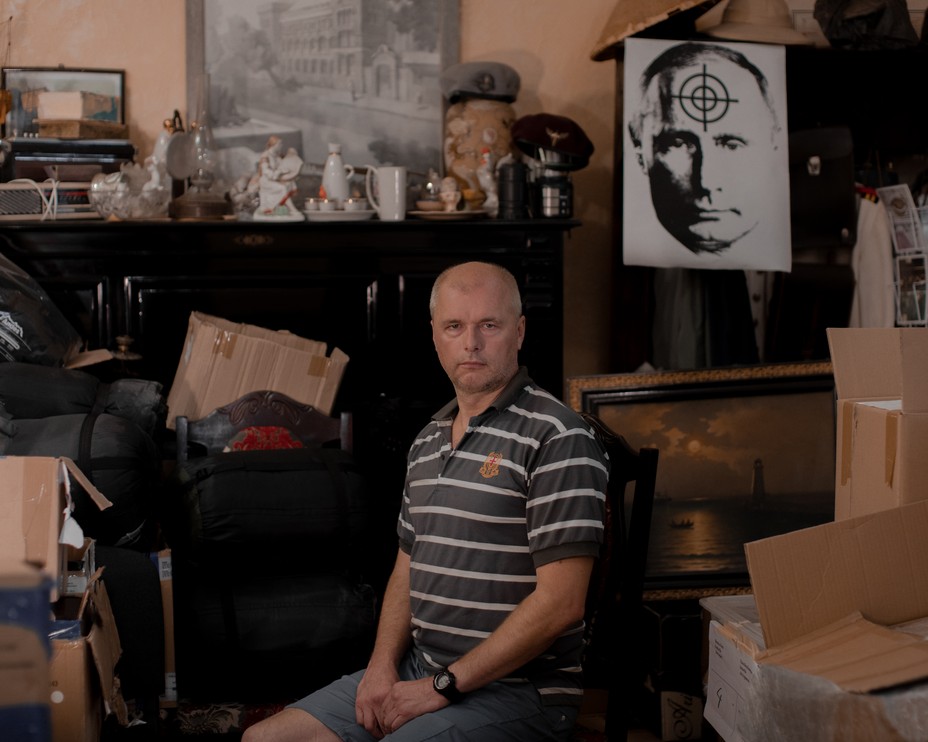
Nor are they alone. In a half-abandoned building in a different part of town, Natalia Topolova introduced me to a group of women that, funded by a patriotic florist, weave special camouflage blankets and suits for snipers. These “spider ladies,” as they call themselves, come when they can—after work, when children are in school—to sew strips of multicolored cloth onto fabric and nets. At a street café, two Odesa engineers explained to me how they had worked, again, with officers they know, in order to identify exactly the right optical technology that Ukrainian soldiers needed to make their weapons work better. Then they raised money and started importing it from America and Japan.
In his elegant gallery in the city center, Mikhail Reva, a renowned Ukrainian sculptor who designed several notable monuments around Odesa, has also been seized by the spirit of toloka. His Reva Foundation, originally created to fund artistic education and urban design in Ukraine, has been redirected to purchase first-aid kits for soldiers. The various international contacts Reva has accumulated over years—a friend in San Diego who used to live in Odesa, other artists and designers around the world—have also helped him pay for a training program designed to teach soldiers how to use the first-aid kits, especially the tourniquets that can stop someone from dying in the field. He has drawn not just on Ukrainian civil society to support the Ukrainian army, but civil society in many countries.
Dmytro Milyutin, for example, lives in a world that bears no resemblance to an old-fashioned Ukrainian village. He runs a parfumerie, a shop in central Odesa where he sells famous perfumes as well as oddities, bottles containing the scent of smoke or of apple pie. He designs fragrances for individuals and says he considers himself a connoisseur “not just of scents but of emotions.” But since the war began, he has sold a fifth of his perfume collection and taken out a loan to provide sophisticated military clothing to Ukrainian soldiers fighting near Odesa. The Ukrainian army distributes basic uniforms, but not the pocketed vests specially designed to carry guns and first-aid kits, or the light backpacks that American soldiers take for granted. Milyutin got a local fashion designer to put aside his dressmaking business and start sewing together canvas and velcro strips to make things easier for soldiers on the move. He, too, keeps in touch directly with commanders.
While Milyutin and I speak, two women in heels and full makeup come in to buy perfume. They spray different scents onto little sticks and wave them in front of their nose as Milyutin keeps talking about the design of the backpacks that are gathered on the floor beneath the bottles. The ladies don’t mind the backpacks, because that kind of thing, like the air-raid sirens, is normal now too.
Around the corner from Milyutin’s shop, Olexander Babich’s office also now contains piles of sleeping bags, ground mats, binoculars, and night-vision goggles, bought using donations, now being sorted for distribution. Babich is a well-known historian and the author of Odessa 1941–1944, a book about daily life under the fascist occupation, about how people survived, and, he writes, about “how people befriended the enemy, or opposed them.” When the war began, he drove his family across the border, came home, and began to prepare to oppose the new enemy. He and some historians from Kherson, now living in his apartment, track down, import, and distribute the equipment that is now stacked up against the bookshelves. They go to shooting ranges themselves, too, just to keep in practice. In a very real sense, they are already supporting Ukrainian soldiers the way an old-fashioned resistance movement would, except that they use the internet to raise money and purchase equipment.

Nor are they alone. In a half-abandoned building in a different part of town, Natalia Topolova introduced me to a group of women that, funded by a patriotic florist, weave special camouflage blankets and suits for snipers. These “spider ladies,” as they call themselves, come when they can—after work, when children are in school—to sew strips of multicolored cloth onto fabric and nets. At a street café, two Odesa engineers explained to me how they had worked, again, with officers they know, in order to identify exactly the right optical technology that Ukrainian soldiers needed to make their weapons work better. Then they raised money and started importing it from America and Japan.
In his elegant gallery in the city center, Mikhail Reva, a renowned Ukrainian sculptor who designed several notable monuments around Odesa, has also been seized by the spirit of toloka. His Reva Foundation, originally created to fund artistic education and urban design in Ukraine, has been redirected to purchase first-aid kits for soldiers. The various international contacts Reva has accumulated over years—a friend in San Diego who used to live in Odesa, other artists and designers around the world—have also helped him pay for a training program designed to teach soldiers how to use the first-aid kits, especially the tourniquets that can stop someone from dying in the field. He has drawn not just on Ukrainian civil society to support the Ukrainian army, but civil society in many countries.
- Sep 13, 2002
- 100,655
- 213,553
- 113
The scale of these efforts surprises outsiders, but it shouldn’t. Too often, in America and Europe, our definition of civil society is cramped and narrow. We use the term to mean “human-rights groups,” or confuse it with nonprofits, as if civil society consists solely of organizations with HR departments and neat mission statements. But civil society can also have an anarchic, spontaneous character, coming into being in response to an emergency or a crisis. It can look like the Odesa schoolroom temporarily packed to the ceiling with canned food, paper towels, childrens’ diapers, bags of pasta, where Natalia Bogachenko, a former businesswoman, runs a distribution point for humanitarian aid (“controlled chaos,” she calls it). It can look like the two chic Kyiv restaurants from which Slava Balbek started a food kitchen for the territorial army during the first days of the war, eventually organizing 25 restaurants and two bakeries into a cooperative that cooked thousands of meals every day.
Balbek is best known as an architect, the founder of the most successful design company in Ukraine; he has motifs from a Kazimir Malevich painting tattooed on his arm, adding a different twist to the Ukrainian tattoo. But although Balbek is normally surrounded by artists and architects, although he has designed hotels and offices in China and California, he told me that the cooks, bakers, and volunteers in those strange, panicky days produced a special kind of creative energy, pulling together something from nothing, innovating and adjusting. “Oh, we only have eggs to cook with, they would say: ‘Let’s make breakfast all day today!’” In the end, he said, “your fellow volunteers become like a second family.” And you never forget them.
There is a darker side to this story. If the Ukrainian army were better equipped, after all, or if Ukraine were a wealthier or better-run country, or if so many Ukrainians had not wasted so much time over the past 30 years creating corrupt schemes or battling them, then maybe this enormous social movement would not be necessary. The volunteers emerged precisely because Ukrainian soldiers don’t have first-aid kits, Ukrainian snipers don’t have the right uniforms and the Ukrainian state doesn’t have the capability to distribute these things either. Many of the volunteers succeed because prominent or entrepreneurial people can break bureaucratic import rules, can raise money more nimbly than the state, and can then deliver equipment directly to officers in the field or to refugees in a war zone. “Without volunteers, it would be impossible to continue this war,” says Milyutin, the connoisseur of exotic scents. But that, too, is worrying, since the adrenalin required to sustain this level of activity is now running low. Even volunteers need to pay their rent.
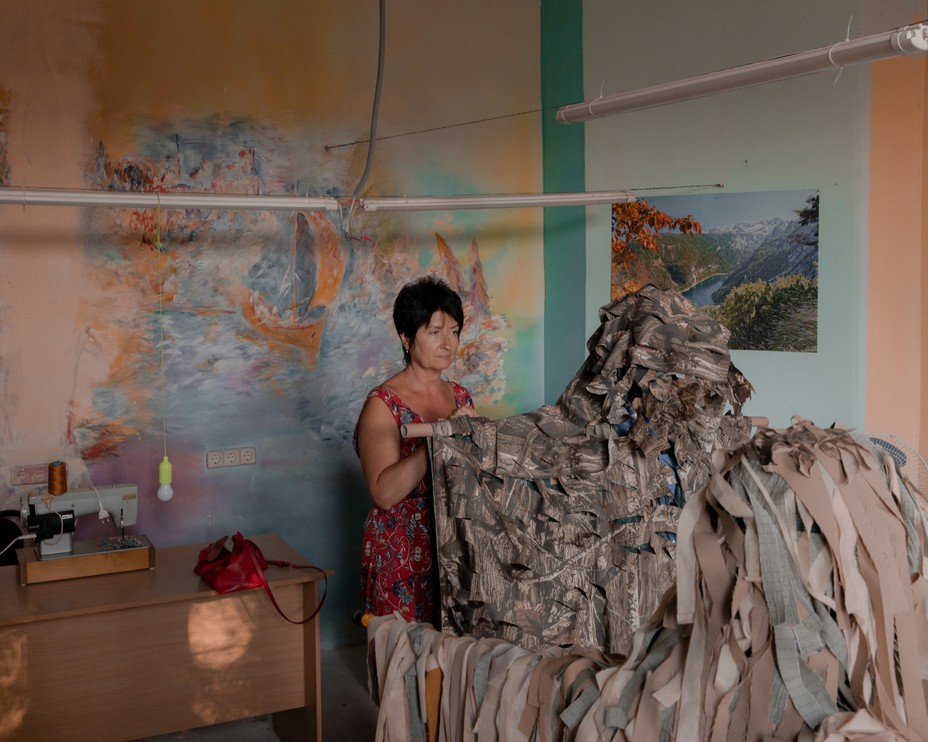
But even if it was inspired by the deficits of the Ukrainian state, many hope this wave of activism will wind up reshaping that state, just as popular activism during the Orange Revolution in 2004–05 and the Euromaidan protests in 2013–14 also changed Ukraine. Precisely because Odesa is a Russian-speaking city with a cosmopolitan history, precisely because Odesa has a living memory of occupation, the volunteer movement here will jolt many of the city’s inhabitants abruptly in the direction of “Ukrainianness,” as well as in the direction of the things that term now represents: democracy, openness, and European identity.
In Odesa, this process has begun. Bogachenko, the activist who runs the refugee-aid center, told me that she speaks Russian but has no doubt about who she is: “Greek, Jewish, Russian, Ukrainian—if you have a Ukrainian passport, you are Ukrainian.” Reva, the sculptor, went to art school in Russia (in what was then Soviet Leningrad) but describes today’s war as a contest between good and evil, in which choosing sides is not remotely hard. The Russians, he says, among them many former friends and colleagues, “want to destroy everything and make us slaves.” Trukhanov, the mayor, who has been accused of secretly holding a Russian passport and maintaining deep Russian connections, spent a good part of our conversation denying vociferously that this is the case, even though I didn’t ask him about it. He has now made a clear choice, for Ukraine and against Russia, and he wants everyone to know it.
The life experiences of these Ukrainians have already created a wide gap between them and their Russian neighbors. The Russian president, Vladimir Putin, likes to talk about how Russians and Ukrainians are the same nation, the same people. But Ukraine’s civic and military mobilization around the war is the best possible illustration of how much and how quickly nations and people can diverge. For although a few online efforts to raise money for the military in Russia are under way, there is nothing on the scale of what is happening in Ukraine, no mass civic mobilization, no teams of volunteers, no equivalent to the Kalush Orchestra—the Ukrainian band that won the Eurovision Song Contest this year, auctioned off its trophy for $900,000, and used the money to buy three PD-2 drones for the army.
Balbek is best known as an architect, the founder of the most successful design company in Ukraine; he has motifs from a Kazimir Malevich painting tattooed on his arm, adding a different twist to the Ukrainian tattoo. But although Balbek is normally surrounded by artists and architects, although he has designed hotels and offices in China and California, he told me that the cooks, bakers, and volunteers in those strange, panicky days produced a special kind of creative energy, pulling together something from nothing, innovating and adjusting. “Oh, we only have eggs to cook with, they would say: ‘Let’s make breakfast all day today!’” In the end, he said, “your fellow volunteers become like a second family.” And you never forget them.
There is a darker side to this story. If the Ukrainian army were better equipped, after all, or if Ukraine were a wealthier or better-run country, or if so many Ukrainians had not wasted so much time over the past 30 years creating corrupt schemes or battling them, then maybe this enormous social movement would not be necessary. The volunteers emerged precisely because Ukrainian soldiers don’t have first-aid kits, Ukrainian snipers don’t have the right uniforms and the Ukrainian state doesn’t have the capability to distribute these things either. Many of the volunteers succeed because prominent or entrepreneurial people can break bureaucratic import rules, can raise money more nimbly than the state, and can then deliver equipment directly to officers in the field or to refugees in a war zone. “Without volunteers, it would be impossible to continue this war,” says Milyutin, the connoisseur of exotic scents. But that, too, is worrying, since the adrenalin required to sustain this level of activity is now running low. Even volunteers need to pay their rent.

But even if it was inspired by the deficits of the Ukrainian state, many hope this wave of activism will wind up reshaping that state, just as popular activism during the Orange Revolution in 2004–05 and the Euromaidan protests in 2013–14 also changed Ukraine. Precisely because Odesa is a Russian-speaking city with a cosmopolitan history, precisely because Odesa has a living memory of occupation, the volunteer movement here will jolt many of the city’s inhabitants abruptly in the direction of “Ukrainianness,” as well as in the direction of the things that term now represents: democracy, openness, and European identity.
In Odesa, this process has begun. Bogachenko, the activist who runs the refugee-aid center, told me that she speaks Russian but has no doubt about who she is: “Greek, Jewish, Russian, Ukrainian—if you have a Ukrainian passport, you are Ukrainian.” Reva, the sculptor, went to art school in Russia (in what was then Soviet Leningrad) but describes today’s war as a contest between good and evil, in which choosing sides is not remotely hard. The Russians, he says, among them many former friends and colleagues, “want to destroy everything and make us slaves.” Trukhanov, the mayor, who has been accused of secretly holding a Russian passport and maintaining deep Russian connections, spent a good part of our conversation denying vociferously that this is the case, even though I didn’t ask him about it. He has now made a clear choice, for Ukraine and against Russia, and he wants everyone to know it.
The life experiences of these Ukrainians have already created a wide gap between them and their Russian neighbors. The Russian president, Vladimir Putin, likes to talk about how Russians and Ukrainians are the same nation, the same people. But Ukraine’s civic and military mobilization around the war is the best possible illustration of how much and how quickly nations and people can diverge. For although a few online efforts to raise money for the military in Russia are under way, there is nothing on the scale of what is happening in Ukraine, no mass civic mobilization, no teams of volunteers, no equivalent to the Kalush Orchestra—the Ukrainian band that won the Eurovision Song Contest this year, auctioned off its trophy for $900,000, and used the money to buy three PD-2 drones for the army.
- Sep 13, 2002
- 100,655
- 213,553
- 113
And no wonder: Following in the steps of the Soviet leaders who preceded him, Putin has systematically destroyed whatever civic spirit emerged after the Soviet Union’s collapse, squeezing everything spontaneous and everything self-organized out of Russian society, silencing not just independent newspapers and television but also historical societies, environmentalists, Jehovah’s Witnesses. Lenin was deeply suspicious of any group or organization, however apolitical or mundane, that was not directly dependent on the Communist Party. Putin has inherited a similar paranoia.
In order to prevent people from organizing themselves—in order to convince people that there is no point in doing anything, or changing anything—the Russian state and its propaganda machine have for two decades promoted fear, apathy, and cynicism. Every night, television news mocks the West and regularly threatens nuclear war, even promising the “annihilation” of Britain or New York. The result is that Russians don’t protest in large numbers against the war, but they also don’t spontaneously organize huge campaigns in support of it either. The somewhat mysterious “Z” campaign (Why Z? No one has really explained) is visible on social media and television, but not much pro-war fervor or Z activism is evident in the streets.
On the contrary, the only real grassroots activists in Russia right now are the anonymous teams of brave people, all around the country, who are quietly helping the Ukrainian refugees forcibly deported to distant parts of Russia return home. A few weeks ago, I met an exiled Russian activist who described the chain of connections she had used to help a Ukrainian woman with a small baby and no passports or visas—they had been lost in the chaos—escape the far east of Russia and cross the country’s western border into Estonia. But the activist’s efforts put her in the dissident minority. She had left Russia even before the invasion; her colleagues on this modern underground railroad work in secret.
In Ukraine, she would be a leader of an established and respected organization. In Russia, she risks arrest as an enemy of the people. That paradox alone explains how the two countries have become so different.
I began this article with the ambivalence that hangs in the sultry air of Odesa, and I should end with a reminder that this sentiment has not gone away. Participation in the volunteer movement, though widespread, is not universal. Ukraine is not a nation of saints. Not everyone with a Ukrainian passport is fighting for the country, or even planning to remain in the country. Not everyone is active, brave, or optimistic. A New York acquaintance describes a Ukrainian working on Wall Street whose reaction to the war was: I need to get my family out, and then I am never going back there again. On the train from Warsaw to Kyiv, I met a woman returning home from exile whose skepticism about Ukraine’s leaders led her in the direction of various conspiracy theories: How come my apartment was damaged but the houses of the rich were spared?
But what matters is what comes next, and voices like those will not be the decisive ones in postwar Ukraine. That role will go to those who stayed, those who volunteered, those who built the ad hoc organizations that became real ones, who made the effort to link bakers and taxi drivers and medics to the war effort. The volonteri will create Ukraine’s postwar culture, rebuild the cities and run the country in the future. They will resist Russian influence, Russian corruption, and Russian occupation because the modern Russian state threatens not just their lives and property but their very identity. They have defined themselves against a Russian autocracy that suppresses spontaneity and creativity, and they will go on doing so long after the war is over.
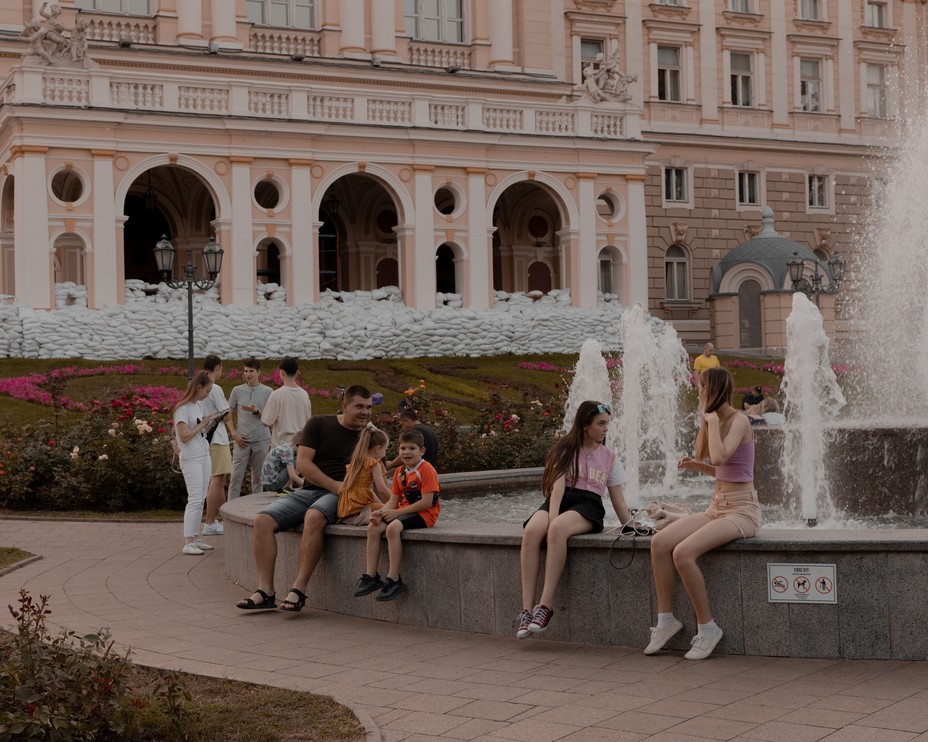
Odesa remains a city suspended between great events. As I write this, I don’t know what will happen next. All I can tell is that the activists and the volunteers, in Odesa and across the country, believe that the next great event will be not another calamity, but a Ukrainian victory.
In order to prevent people from organizing themselves—in order to convince people that there is no point in doing anything, or changing anything—the Russian state and its propaganda machine have for two decades promoted fear, apathy, and cynicism. Every night, television news mocks the West and regularly threatens nuclear war, even promising the “annihilation” of Britain or New York. The result is that Russians don’t protest in large numbers against the war, but they also don’t spontaneously organize huge campaigns in support of it either. The somewhat mysterious “Z” campaign (Why Z? No one has really explained) is visible on social media and television, but not much pro-war fervor or Z activism is evident in the streets.
On the contrary, the only real grassroots activists in Russia right now are the anonymous teams of brave people, all around the country, who are quietly helping the Ukrainian refugees forcibly deported to distant parts of Russia return home. A few weeks ago, I met an exiled Russian activist who described the chain of connections she had used to help a Ukrainian woman with a small baby and no passports or visas—they had been lost in the chaos—escape the far east of Russia and cross the country’s western border into Estonia. But the activist’s efforts put her in the dissident minority. She had left Russia even before the invasion; her colleagues on this modern underground railroad work in secret.
In Ukraine, she would be a leader of an established and respected organization. In Russia, she risks arrest as an enemy of the people. That paradox alone explains how the two countries have become so different.
I began this article with the ambivalence that hangs in the sultry air of Odesa, and I should end with a reminder that this sentiment has not gone away. Participation in the volunteer movement, though widespread, is not universal. Ukraine is not a nation of saints. Not everyone with a Ukrainian passport is fighting for the country, or even planning to remain in the country. Not everyone is active, brave, or optimistic. A New York acquaintance describes a Ukrainian working on Wall Street whose reaction to the war was: I need to get my family out, and then I am never going back there again. On the train from Warsaw to Kyiv, I met a woman returning home from exile whose skepticism about Ukraine’s leaders led her in the direction of various conspiracy theories: How come my apartment was damaged but the houses of the rich were spared?
But what matters is what comes next, and voices like those will not be the decisive ones in postwar Ukraine. That role will go to those who stayed, those who volunteered, those who built the ad hoc organizations that became real ones, who made the effort to link bakers and taxi drivers and medics to the war effort. The volonteri will create Ukraine’s postwar culture, rebuild the cities and run the country in the future. They will resist Russian influence, Russian corruption, and Russian occupation because the modern Russian state threatens not just their lives and property but their very identity. They have defined themselves against a Russian autocracy that suppresses spontaneity and creativity, and they will go on doing so long after the war is over.

Odesa remains a city suspended between great events. As I write this, I don’t know what will happen next. All I can tell is that the activists and the volunteers, in Odesa and across the country, believe that the next great event will be not another calamity, but a Ukrainian victory.
Last edited:
"Our armored vehicles are already at the front. This is an incredible feeling! The 79th Airborne Assault Brigade is now equipped with our equipment to effectively carry out a counteroffensive. Desantura, only forward!"
And they have at least 4 other countries supplying trainers.
Sanctions are working…

 www.thedrive.com
www.thedrive.com

Russian Airlines Are Already Stripping Planes for Parts Due to Sanctions
Russia is running out of aircraft parts, and they're tearing apart new planes just to keep the rest flying.
Yeah, but remember, they've "repatriated" tens of thousands of Ukrainians to replace the dead.Even more crazy is when you factor in Russian population being 44% of US. Losing 44k Russian soldiers would hit like the US losing 100k
I didn't see what the penalty would be in an earlier tweet.
I'd like to provide more detailed analysis, but all I can really say is that Russia's Air Force is sh***y.More bad news for Russia's air force.

Ukrainian soldier brings down Russian Su-25 attack jet
OLENA ROSHCHINA - WEDNESDAY, 10 AUGUST 2022, 18:46 A serviceman of the National Guard of Ukraine has brought down a Russian Su-25 attack jet during aircraft's sortie on the Zaporizhzhia front. Source: National Guard of Ukraine on Facebook Quote: "The Ruscists have lost another Su-25 attack jet.www.yahoo.com
Similar threads
- Replies
- 4
- Views
- 441
- Replies
- 2
- Views
- 251
- Replies
- 3
- Views
- 325
ADVERTISEMENT
ADVERTISEMENT
